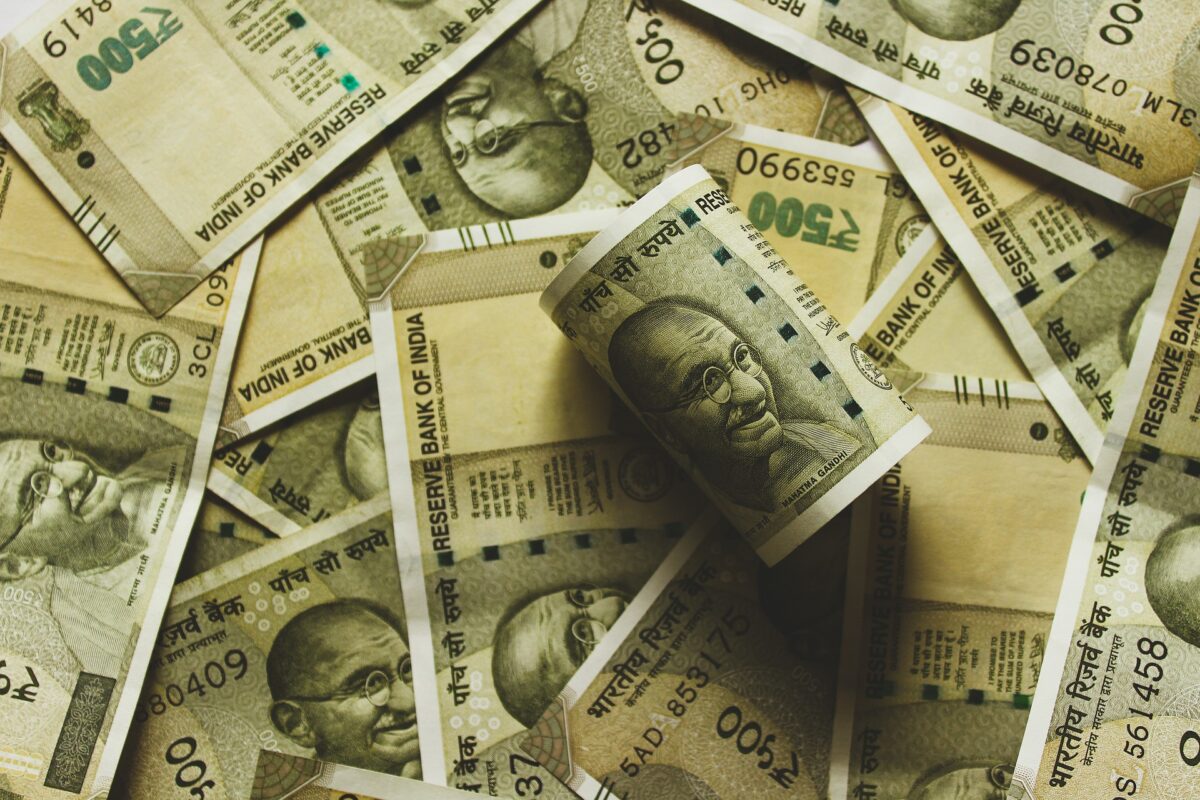In all, 2,012 electoral bonds were sold during this 10-day period, amounting to a total of ₹1,148.38 crore.
Published Nov 02, 2023 | 10:35 PM ⚊ Updated Nov 05, 2023 | 2:42 PM

Money (Representational Image/Creative Commons)
On 29 September, the Union government approved the issuance of the 28th tranche of electoral bonds, which opened for a 10-day period between 4 and 13 October.
The exercise took place just before the Assembly elections in Rajasthan, Madhya Pradesh, Chhattisgarh, Telangana, and Mizoram, which are to be held this month.
Hyderabad in Telangana registered the maximum election bond sales in this round, worth ₹377 crore.
The authorised State Bank of India (SBI) branch in Hyderabad in poll-bound Telangana led the sales with ₹377 crore.
According to the data provided in a RTI query, Hyderabad topped the list with 404 bonds sold, amounting to ₹377 crore, with the highest denomination being ₹1 crore.
Commodore Lokesh Batra (Retd.), a transparency campaigner who received an RTI reply from the SBI regarding the sale of bonds, shared the details with South First.
Interestingly, there were no takers for ₹1,000 and ₹10,000 denomination bonds in the poll-bound states, including Telangana.
Sale details of the Hyderabad main branch of SBI are: Thirteen bonds worth ₹1 lakh each were sold, 15 bonds of ₹10 lakh denomination, and a whopping 376 bonds of ₹1 crore denomination.
Of the total sale of ₹377 crore, ₹376 crore came from the last category.
Strangely, however, the Hyderabad branch witnessed a lower number of encashments, with only 182 bonds being redeemed worth ₹83.63 crore.
It has been reported that nationwide, a total of 2,012 electoral bonds were sold during this 10-day period, amounting to a total of ₹1,148.38 crore.
Notably, 54.4 percent of these bonds sold were in the ₹1 crore denomination, accounting for 94.3 of the bonds in terms of value.
The denominations of ₹10 lakh and ₹1 lakh accounted for just 24.9 percent and 15 percent, respectively. While the denominations of ₹10,000 and ₹1,000 made up 2.73 percent and 2.83 percent, respectively, of the bonds sold.
The bonds were sold across 29 authorised SBI branches in cities across the country.
“This happened when elections are due in five states. Why do donors have so much love for political parties unless there is a quid pro quo,” said Commodore Batra.
In the RTI reply to Batra, the SBI said that 25 political parties have opened accounts for redeeming electoral bonds so far.
However, out of the 2,012 bonds, only 2,007 bonds were redeemed by the political parties. Of the bonds sold in the ₹1,000 denomination, three bonds from Bengaluru and two bonds from New Delhi were not redeemed.
In terms of encashment of the bonds — as opposed to their purchase — the New Delhi branch took the lead with 1,175 bonds, of which 775 were of ₹1 crore denomination.
The total was worth ₹800.96 crore.
Kolkata secured the second position, with 442 bonds encashed with a total worth of 171.28 crore.
The Union government, led by the BJP, implemented the electoral bond scheme in 2018.
A press release by the Ministry of Finance in January 2018 stated that the government had notified the scheme to cleanse the system of political funding.
However, there has been quite a bit of controversy around electoral bonds, especially pertaining to transparency, as the details of the donors are not shared.
The electoral bonds have been challenged in the top court. On 31 October, a five-judge Constitution bench of the Supreme Court began hearing petitions challenging the validity of electoral bonds used to fund political parties.
As per the statement issued by the Union Finance Ministry on 29 September, a person — being an individual — can buy electoral bonds either singly or jointly with other individuals.
Only the political parties registered under Section 29A of the Representation of the People Act of 1951 and which secured not less than 1 percent of the votes polled in the last election to the Lok Sabha or the Legislative Assembly of a state are eligible to receive electoral bonds.
The bonds may be encashed by an eligible political party only through an account with the authorised bank.
The ministry also said the bonds would be valid for 15 calendar days from the date of issue, and no payment would be made to any payee political party if the bond was deposited after the expiry of the validity period.
Bonds deposited by an eligible political party in its account would be credited on the same day.
